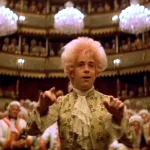Rome (2005)

“Rome,” a historical drama television series co-created by John Milius, William J. MacDonald, and Bruno Heller, premiered in 2005 and ran until 2007. Set in the 1st century BCE, the series intricately chronicles the tumultuous period of Ancient Rome as it transitions from a Republic to an Empire. Through its rich storytelling, complex characters, and breathtaking visuals, “Rome” offers viewers a profound understanding of the political and social dynamics of this pivotal era.
The narrative primarily revolves around the lives of two soldiers, Lucius Vorenus (Kevin McKidd) and Titus Pullo (Ray Stevenson), whose fates intertwine with the most significant historical figures of the time, such as Julius Caesar (Ciarán Hinds), Cleopatra (Linda Gaboriau), and Octavian (Max Pirkis). Vorenus and Pullo serve as both protagonists and observers, providing a unique perspective on the political machinations and personal struggles of the Roman elite.
One of the standout features of “Rome” is its commitment to historical accuracy and detail. The creators undertook extensive research to accurately depict the customs, politics, and daily life of Ancient Rome. This dedication to authenticity is evident in the show’s elaborate set designs, authentic costumes, and the depiction of Roman society’s intricacies. The series does not shy away from showcasing the brutal realities of life in ancient times, including warfare, slavery, and the often harsh social hierarchy.
At its core, “Rome” explores the themes of power, ambition, and betrayal. The series delves deep into the character of Julius Caesar, portraying him as a complex figure driven by ambition but ultimately human in his vulnerabilities. His rise to power and subsequent assassination are central events that shape the narrative, reflecting the precarious nature of political power in a society rife with corruption and intrigue. The political landscape of Rome is depicted as a chess game, where alliances are formed and broken, and trust is a rare commodity.

The character development in “Rome” is another compelling aspect of the series. Lucius Vorenus and Titus Pullo serve as relatable figures amidst the grand historical events. Their journey from soldiers to influential players in Roman politics highlights the struggles of ordinary men navigating a world dominated by the ambitions of the powerful. Vorenus, who seeks to uphold Roman virtues, often finds himself at odds with the moral decay surrounding him, while Pullo, the more impulsive of the two, embraces the chaos with a sense of bravado.
The series also explores the role of women in Ancient Rome, portraying strong and influential characters such as Atia of the Julii (Polly Walker) and Servilia of the Junii (Cynthia Nixon). These women wield power in their own right, often manipulating events behind the scenes to secure their positions and influence the men in their lives. Atia, in particular, is a masterful representation of female ambition, embodying the complexities of power dynamics in a patriarchal society.

The cinematography and production values of “Rome” are exceptional, creating a visually stunning portrayal of ancient life. The series captures the grandeur of Roman architecture, the bustling streets of the city, and the stark contrast between the opulence of the elite and the struggles of the common people. The use of natural lighting and rich color palettes adds depth to the storytelling, immersing viewers in the world of Ancient Rome.
Moreover, the score composed by Jeff Beal enhances the emotional weight of the series, evoking the grandeur and tragedy of the historical narrative. The music complements the intense drama and the personal stories of the characters, reinforcing the series’ themes of ambition, love, and betrayal.

In conclusion, “Rome” stands out as a masterful depiction of a transformative period in history. Its blend of rich character development, historical accuracy, and dramatic storytelling creates an engaging narrative that resonates with viewers. The series invites audiences to reflect on the complexities of power and the enduring nature of human ambition and morality. Through its exploration of both historical events and the personal lives of its characters, “Rome” remains a captivating and insightful portrayal of one of history’s most fascinating epochs.











